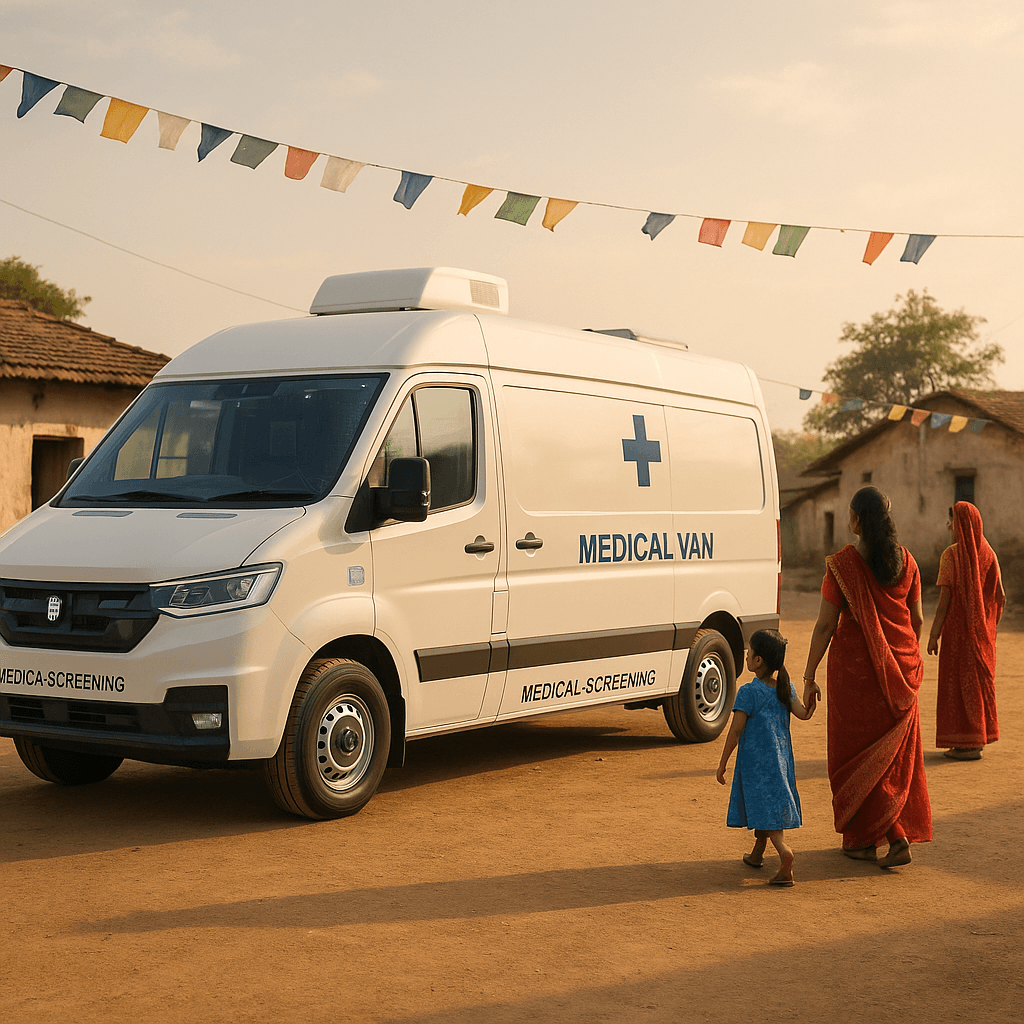Mobile cancer screening vans powered by AI are transforming healthcare access in rural India, where two-thirds of the population lives. The initiative has screened over 3,500 women - 90% getting their first-ever mammogram - and identified 24 confirmed breast cancer cases that might otherwise have gone undetected until advanced stages.
An unassuming van rolling through India's countryside is quietly revolutionizing cancer care for millions of women who've never had access to screening. The Women Cancer Screening Van, run by the nonprofit Health Within Reach Foundation, carries something remarkable: AI-powered mammography that's bringing world-class diagnostics to villages where preventive healthcare barely exists.
The numbers tell a striking story. In just one year, these mobile clinics have screened over 3,500 women across rural areas around Pune - and 90% had never had a mammogram before. More critically, the AI system flagged about 300 abnormal findings, leading to 24 confirmed breast cancer diagnoses that were caught early enough for treatment.
"Using our software built with NVIDIA technology, they identified 24 cancer-positive patients and connected them to treatment before the disease could progress further," Ron Nag, CEO of MedCognetics, told NVIDIA's blog. "This is the way I want to see AI implemented around the world, to help people."
The Dallas-based MedCognetics, part of the NVIDIA Inception startup program, has developed FDA-cleared AI systems that can spot the tiniest tumors radiologists might miss. The software runs on NVIDIA IGX Orin edge AI platforms or cloud-based NVIDIA Tensor Core GPUs, processing mammography data in real-time to flag high-risk cases.
"One of the biggest challenges is finding small tumors," Nag explained. "When we started, all the radiologists we spoke to said they didn't want AI to help them see tumors the size of raisins or golf balls - they wanted AI to help them see the tumors that are so small they might easily be missed."
The mobile approach tackles a brutal healthcare reality in India. Dr. Mudassar Shaikh, chief medical officer of the Health Within Reach Foundation, points out that "developing countries generally have a lot of load on their existing healthcare institutions." For the nearly two-thirds of Indians living in rural areas, traveling to urban centers for screening isn't just inconvenient - it's often impossible.












